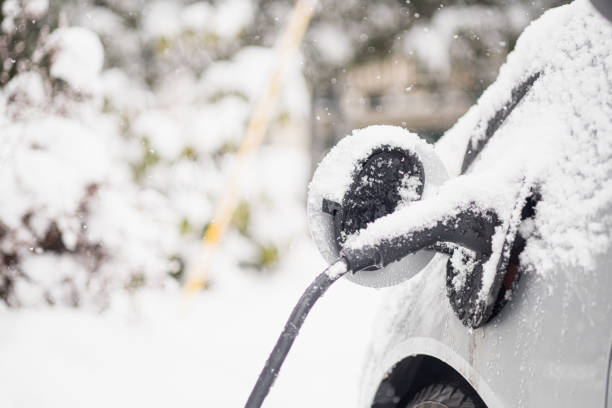
The winds of winter are out in full force, leaving us to make the proper adjustments. The heat is cranked up, the salt is spread across the sidewalk, and the winter wardrobe has once again taken up residence in the closet. Meanwhile, perhaps you’ve noticed your new Honda CR-V acting a bit more sluggish than it did during the summer and fall.
Considering that even traditional car batteries struggle in cold conditions, it should come as no surprise that electric vehicle owners need to stay extra attentive throughout winter. Your EV’s range and performance will inevitably drop a little until the weather warms up, but by implementing these maintenance tips, you won’t have to worry about your EV running out of charge and being stranded in the cold.
Don’t Let Your Battery Dip Below 20%
Due to lower battery performance and increased energy consumption, EV owners can expect a 20-30% decrease in range during the winter. This is normal, as the lithium ions in electric batteries slow down when the temperature decreases. EV batteries aren’t that different from the human body; warm weather is their natural preference, with optimal temperatures of 59-95 degrees Fahrenheit.
So then what to do when winter intervenes? First, as an important precautionary measure, don’t let your battery fall below a 20% charge. Since batteries are more susceptible to sudden depletion in the winter, letting the charge drop to that level is risky. Keep your car charging when not in use – the same as you would with your phone, tablet, or other essential electronic device.
Park Indoors When Possible
If you own a garage or a similar storage unit, try to keep your car parked inside for the duration of winter. Of course, street parking is the only option for many of us. If that’s the case, keep the battery engaged by starting it at least once a day, rather than leaving it parked for long stretches. If you have no choice but to leave it parked for an extended period, make sure the battery is charged to at least 70% to avoid degradation while idle.
You’ll also want to avoid fast (or DC) charging. Though it may not be convenient, it’s healthier for the battery to charge at slower speeds during the winter. Level 1 charging, generally the slowest charging option, is actually the preferable option for cold weather. Additionally, remember to leave your EV in ECO mode.
Monitor Heat Levels
Before heading out to work or run errands, it’s a good idea to preheat your electric vehicle. By incrementally increasing the heat, you can minimize the strain on the battery when you start driving. Whenever feasible, it’s recommended to charge your car while heating it, as this will draw power from the charger rather than the battery, maximizing your daily range.
After warming up the car, try to be mindful of your heat’s usage. Instead of relying solely on the heater, consider utilize your heated seat to keep warm. Consistently blasting the heat will impact your range. Don’t allow yourself to drive in discomfort, but be mindful not to over-exert the heater. Remember, it doesn’t appreciate the winter any more than you do.
Remember That We’re Always Here to Help
If your vehicle is still succumbing to the effects of winter, make a trip to Avalon Honda today. Explore whether a hybrid battery replacement for your hybrid or plug-in might be your best course of action. Here at Avalon Honda, our team of service professionals works around the clock to ensure your vehicle gets the service it needs to make it to Beach Season with a clean bill of health.






